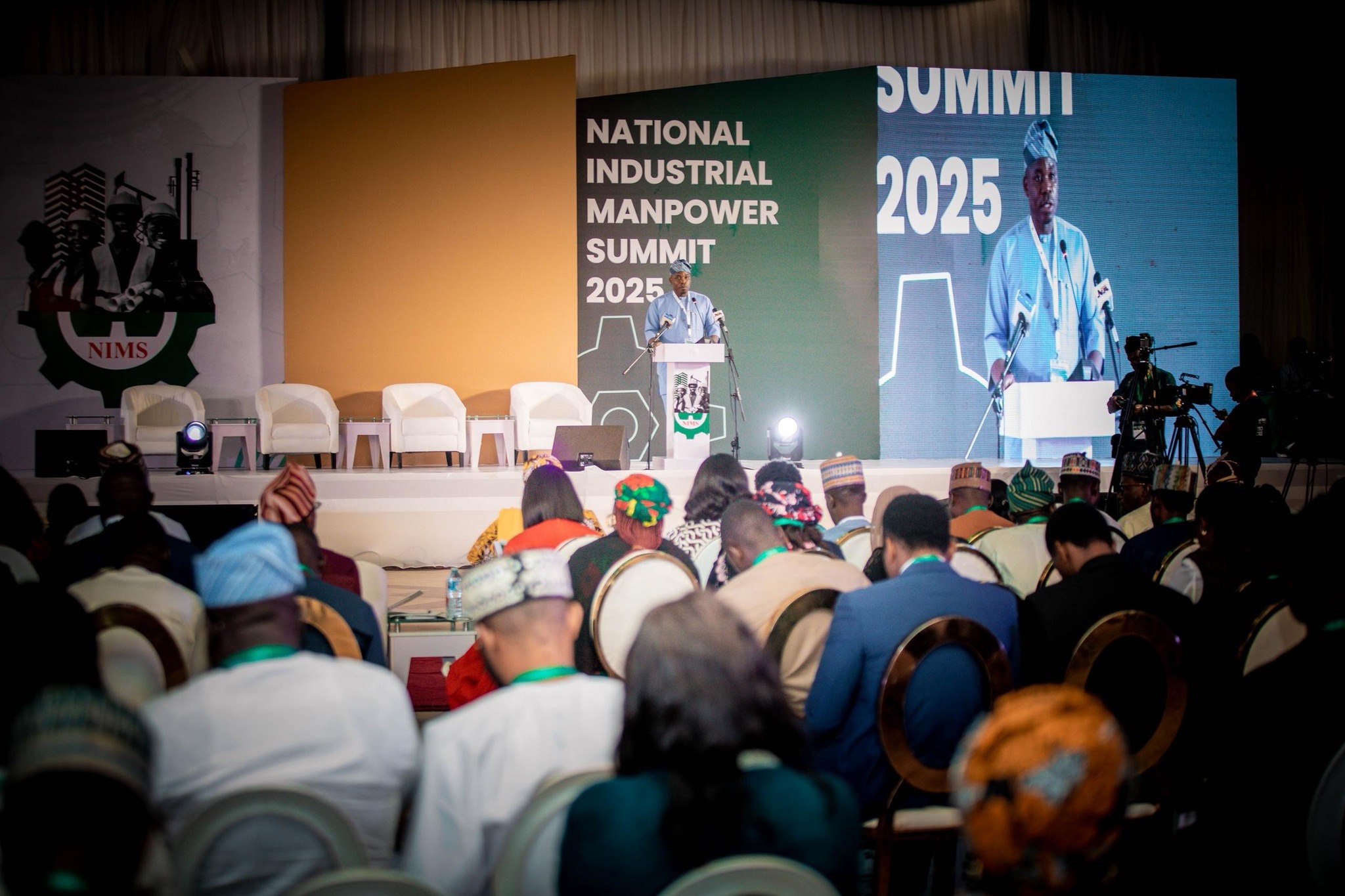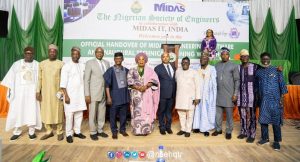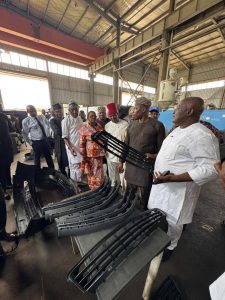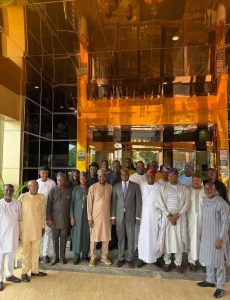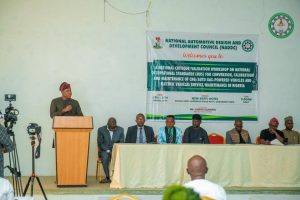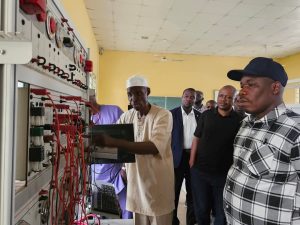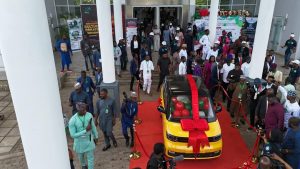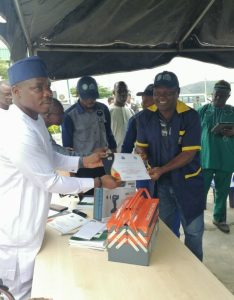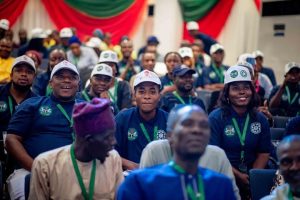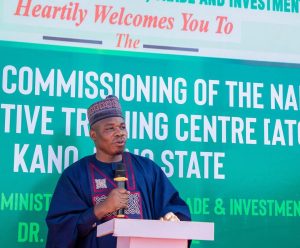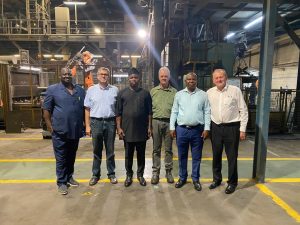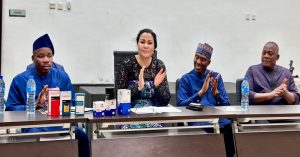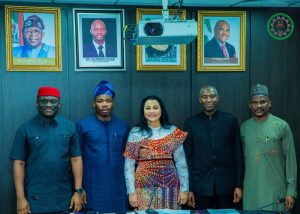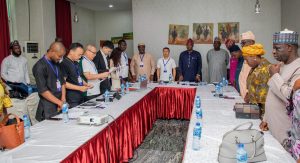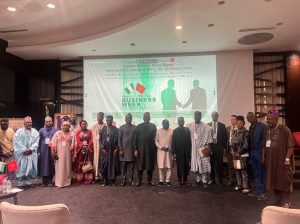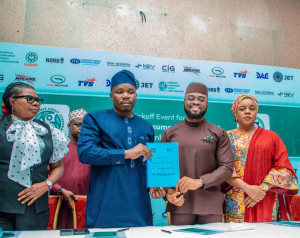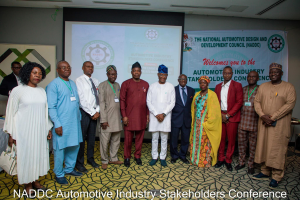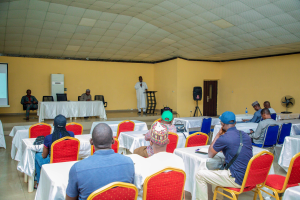Fed’ Gov Reaffirms Commitment to Innovation and Industrial Growth at National Industrial Manpower Summit 2025.
The National Automotive Design and Development Council (NADDC) joined key stakeholders at the National Industrial Manpower Summit (NIMS) held on 12th August 2025 at the Presidential Villa, Abuja, to deliberate on strategies for building a globally competitive workforce and driving industrial transformation in Nigeria. The high-level summit brought together policymakers, industry leaders, and development experts to chart the course for the nation’s first-ever Industrial Manpower Development Policy.
Delivering the keynote address, the Vice President of the Federal Republic of Nigeria, His Excellency, Kashim Shettima GCON, described Nigeria as “an incredibly young country,” noting that this youthfulness is both “a gift and a responsibility.” He emphasized the need to make young people not only a demographic statistic but an integral part of policy-making. “Nigeria’s greatest asset is our people,” he stated, stressing that failure to invest in human capital would have dire consequences. He called for increased investment in technical education, vocational training, and industrial capacity-building, affirming that improvement in human capital, alongside infrastructure and sound policy, is the bridge between development and setback.
“This summit is not just a forum for discussion; it is a summit to produce actionable recommendations that will form the basis of Nigeria’s first-ever industrial manpower development policy,” the Vice President declared.
The Honourable Minister of State for Industry, Senator John Owen Enoh, reinforced the Federal Government’s resolve to align manpower development with the demands of industrial competitiveness.
“We are here to ensure that education speaks the language of industry, that training anticipates the needs of the future, and that our workforce is equipped not just for today’s economy, but for the global economy,” he said.
Senator Enoh described productivity as “the lifeblood of industry” and urged the development of an actionable and regularly updated National Skills Development Framework, alongside immediate pilot programmes to demonstrate proof of concept.
Representing the automotive sector, the Director-General/CEO of NADDC, Mr. Oluwemimo Joseph Osanipin, reiterated the Council’s dedication to building technical skills, advancing technology, and promoting sustainable energy adoption. He highlighted the Nigerian Automotive Industry Development Plan (NAIDP), relaunched in 2023, which prioritizes skills acquisition and technology development as pillars for industrial growth.
Mr. Osanipin outlined key NADDC achievements, including:
1. Development of National Occupational Standards (NOS) for CNG retrofitting, electric vehicles, mechatronics, motorcycles, tricycles, and agricultural machinery.
2. Establishment of 22 Automotive Training Centres and the installation of EV charging and CNG stations nationwide.
3. Training initiatives that have equipped technicians, Quality Assurance Assessors, and over 500 youths with industry-relevant skills.
4. Creation of automotive industrial hubs in Akure, Sokoto, and Owerri to strengthen local manufacturing capacity.
He commended President Bola Ahmed Tinubu for prioritizing industrial development and called for stronger multi-sector partnerships to position Nigeria’s automotive industry for global competitiveness.
“Skills, innovation, and sustainable energy adoption are key to unlocking the full potential of Nigeria’s automotive sector,” he affirmed.
The summit concluded with a shared commitment by all stakeholders to implement actionable strategies that will enhance Nigeria’s human capital, strengthen industrial capacity, and drive long-term economic growth.

